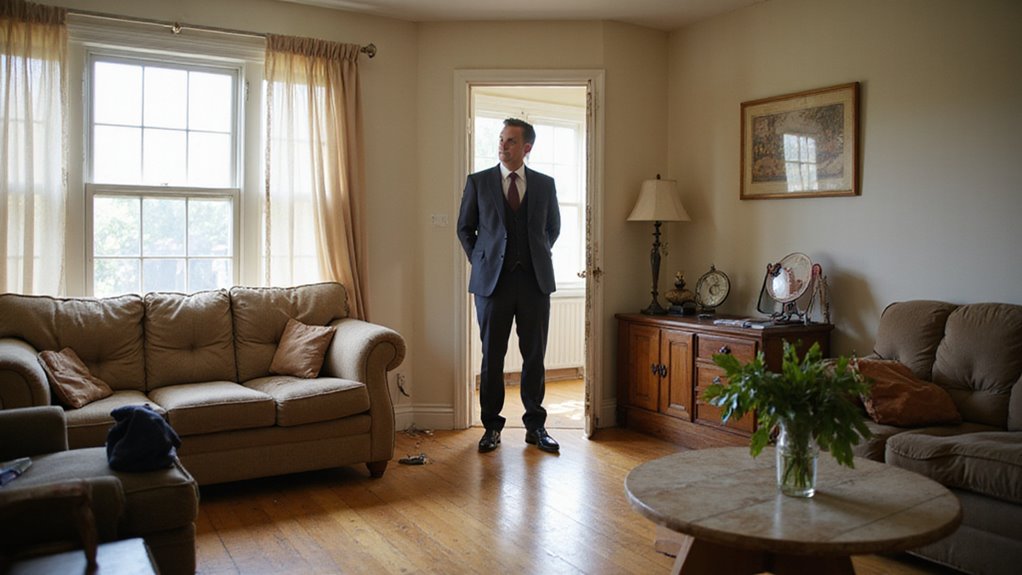Your home’s listing has expired, and now you face a tough question. Should you lower the price to attract new buyers? Many sellers feel stuck and worry about making the wrong move.
An expired listing can be discouraging. You may fear your home is overpriced or that buyers have lost interest. This uncertainty can lead to rushed decisions that might hurt your final sale price.
You should not automatically lower your price after an expired listing. Instead, review the market, recent sales, and buyer feedback. This careful approach helps you make the best choice for your situation. This blog will guide you through each step to help you relist your home with confidence and success.
Key Takeaways
- Analyze recent comparable sales to determine if your original price was above current market value before deciding on a price reduction.
- Lowering the price can refresh buyer interest and attract more attention, especially if the prior listing was overpriced.
- Use feedback from showings to identify if price, condition, or marketing was the main barrier to selling.
- Avoid repeated small reductions, as this can signal desperation and reduce buyer trust or encourage lowball offers.
- Collaborate with your agent to set a realistic, data-driven price and consider updating photos and marketing strategies when relisting.
Understanding Why Listings Expire

Some property listings expire because they do not sell before the contract ends. The main reasons are price and timing mistakes. If these issues are not fixed, the home may sit unsold.
Buyers compare prices with similar homes. If your home is too expensive, buyers may lose interest quickly. Most buyer activity happens in the first three weeks. Homes in as-is condition often require even more careful pricing, since buyers will factor in repair costs and potential future investments.
Most buyers act early, so if your price is too high, interest drops fast compared to similar homes nearby. Overpriced listings often stay on the market much longer. These homes usually need bigger price cuts later to attract buyers. If you price your home right from the start, you can avoid this problem.
Timing is also important. Listing during slow seasons means fewer buyers will see your home. If you list at the right time, you can create more interest and urgency.
To avoid expiration, you should match your price to current market values. Sellers should also pick the best time to list. If these steps are followed, the property has a better chance to sell quickly. Making competitive pricing a priority can greatly increase your chances of a quick and successful sale.
Evaluating Current Market Conditions
To evaluate current market conditions, look at recent home sales in your area. Check how long homes stay on the market and the number of available listings. This information helps you see if it is a good time to sell. Reviewing the purchase agreement terms can also help you understand how local sale trends might impact negotiations with buyers.
If the market has many sellers, buyers may expect lower prices. When there are fewer homes for sale, sellers often have more power. Interest rates and the time of year can also affect how many buyers are looking.
Compare your property to similar homes that sold quickly. If your home is priced higher, consider adjusting the price. If conditions change, you may need to change your strategy.
Knowing the market helps you plan your next steps. Use this information to make better decisions and improve your chances of selling. Be sure to comply with the necessary housing regulations if you have tenants in your property, as these rules can influence your selling options and timeline.
Assessing Your Original Listing Price

Start by comparing your original listing price to recent sales and active listings to see how it stacks up against true market value. Analyze whether your pricing strategy matched buyer demand and trends in your area. With these insights, you can pinpoint where adjustments will make the biggest impact. If you’re looking for a faster way to sell, consider how cash buyers in Pensacola often buy homes as-is without the need for repairs or fees. Remember, determining appropriate pricing is crucial in attracting buyers while maximizing your profit during a FSBO sale.
Comparing to Market Value
Pricing your home above market value can turn away buyers. Recent sales of similar homes show what buyers are willing to pay. If your price is higher, buyers may pick other homes instead.
Sellers should check sales data from the past six to twelve months. If there are changes in home prices, this affects demand. You should also look at how long homes stay on the market and how close they sell to their list price.
If your home was listed above similar homes, buyers may not have considered it. Comparing your price to market value helps you decide if a price cut is needed. Adjusting your price can make your home more appealing when you relist.
Evaluating Pricing Strategy
After your listing expires, you must review your pricing strategy before relaunching. Pricing affects how buyers see your property. If your price was too high, buyers may have lost interest.
You should look at buyer feedback and agent comments to spot value concerns. If homes at your price stayed on the market longer, your price may be too high. Compare your price to other homes that sold quickly.
Check if your price fit common search brackets in your local market. If your price missed these ranges, fewer buyers may have seen your listing. Adjusting your price could help reach more potential buyers.
Use these findings to set a more attractive price. A well-calibrated price can renew buyer interest. If you adjust correctly, you increase your chances of selling.
Reviewing Comparable Sales in Your Area
Looking at comparable sales in your area helps set a fair new price for your home. Check recently sold homes with similar size, features, and location. Their sale prices and time on market show what buyers expect. If homes like yours sold quickly at lower prices, your old price was likely too high. You should notice if certain prices attract more buyers, like those just below round numbers.
These details help you avoid emotional decisions. Using current sales data lets you follow real market trends. If you want to sell your house for cash, reviewing how quickly cash sales closed in your neighborhood can also guide your pricing strategy. If you set your price based on these facts, you may sell faster. This approach gives you a better chance to relist successfully. If your property has mold issues, understanding how this can affect your home’s value is also important when reviewing comparable sales.
Analyzing Feedback From Previous Showings

Now’s the time to review feedback from past showings to spot common buyer objections and trends in comments. Look for patterns—are most remarks about price, property condition, or both? By pinpointing whether price or presentation is holding buyers back, you can make targeted adjustments that align with market expectations. If you’re considering a quick sale to resolve financial challenges, exploring options like cash home buyers may help you sell without the need for repairs or commissions. Additionally, you might want to consider selling as-is if consistent feedback highlights costly repairs, as this approach can offer a faster and hassle-free sale.
Common Buyer Objections
Buyers do not make offers if certain issues concern them. You can find out why by reading feedback from showings. Look for repeated comments to spot the main problems.
Most buyers hesitate due to three common reasons. If you address these, you can make your home more attractive.
Some buyers think the price is too high compared to other homes. Others notice outdated features or repairs your home needs. Many buyers dislike the layout or location.
If you fix or adjust these issues, you may receive more offers. Consider lowering your price or making simple updates. Addressing buyer concerns can help your property stand out.
Patterns in Showing Responses
Reviewing feedback from showings can reveal what stops buyers from making an offer. If many viewers mention price, your home may be overpriced. Patterns in comments help you identify issues quickly.
Track how many viewings lead to serious interest or second visits. If you get many showings but no offers, buyers may not see enough value. You should consider if your price matches what buyers expect.
Auction strategies can create urgency and attract more interest. If feedback often mentions price resistance, an auction may help. Use all feedback to adjust your price or change your marketing plan.
Let the data guide your next steps. A well-informed approach can help your home sell faster. If you act on clear patterns, you improve your chances of success.
Pricing Versus Property Condition
When you review showing feedback, separate price concerns from property condition. Buyers react differently to cost and appearance. Focus on the main issue to improve your chances of selling.
If buyers say the home is nice but too expensive, your price may be too high. When comments mention needed updates but an okay price, the property’s look is the problem. If buyers think it costs too much for the work needed, both price and condition need fixing.
Use feedback to make smart changes. If you adjust either the price or the condition, your listing may attract more buyers. Data-based decisions can help you sell faster.
Examining Your Home’s Condition and Presentation

You need to check your home’s condition and how it looks before selling. Buyers often ignore homes that look neglected or messy. A well-kept property usually sells faster and for a better price. If you want to avoid the hassles of traditional real estate transactions, consider sell as-is options that let you skip major repairs and lengthy preparation.
Look for any repairs that need attention. Make sure your landscaping is neat. If you own a rural home, check the exterior and outbuildings closely. Check for needed repairs and tidy up your landscaping. Rural homeowners should inspect the exterior and outbuildings for any issues.
Luxury buyers expect homes to be flawless. Even small flaws may turn them away. Fresh paint and a clean home can make a big difference.
Walk through your home as if you are a buyer. If you see anything unappealing, fix it before listing. Small improvements now can help you get better offers.
Addressing necessary repairs and upkeep before relisting can create a positive impression and demonstrate your attention to detail to prospective buyers.
The Role of Professional Photography and Staging
You’ll attract more buyers when your listing features professional photos—homes with high-quality images get up to 61% more views online. Strategic staging helps buyers see your home’s full potential, often leading to faster offers and higher sale prices.
A clear title is also a major factor in attracting buyers, as it ensures there are no legal complications or claims against the property that could delay or derail the sale. Investing in visual appeal can be a powerful alternative to another price cut. If you’re looking for a way to sell quickly without traditional listing hassles, consider the simple and easy selling process offered by Greg Buys Houses in Bay County, FL.
Visual Appeal Boosts Interest
High-quality visuals help listings get more attention. Good photos make a strong first impression online. If your listing expired, your photos may not have appealed to buyers.
Professional photography increases a home’s value and demand. Using colors like blue and green can create a calm feeling. Light neutral colors make rooms look bigger.
Homes with professional photos often sell faster and for more money. Wide-angle shots can make spaces look large and bright. Accent colors can highlight a home’s best features.
If your images are consistent across websites, buyers trust your listing more. Better visuals can lead to more views and showings. If you improve your photos, you may receive more offers.
Staging Highlights Home Potential
Staging shows buyers what your home could look like at its best. It helps them imagine living there. Staged homes usually sell much faster than unstaged ones.
If a home is staged, it will likely spend 73% less time on the market. Professional staging highlights strengths and hides flaws. High-quality photos of staged homes attract more attention online.
If you want to stand out, focus on presentation before lowering your price. The table below shows how staging helps:
| Factor | Unstaged Home | Staged Home |
|---|---|---|
| Time on Market | Longer | 73% Faster |
| Online Click-Through | Lower | Much Higher |
| Perceived Value | May Decrease | Noticeably Increases |
| Curb Appeal | Often Overlooked | Strong, Inviting |
Staging is not just for looks; it is a smart way to sell your home.
Rethinking Your Marketing Strategy

Rethinking your marketing strategy is important after a listing expires. You need to find new ways to attract buyers in a tough market. If you do not adjust your approach, your property may stay unsold.
Many luxury listings fail because they do not reach enough buyers. If your marketing does not match the target audience, you may miss out on interested buyers. Data shows that better exposure helps properties sell faster.
You should look at buyer feedback and study market trends. If certain messages or channels work best, focus on those. It is wise to expand your reach to both luxury and rental markets.
Properties with high-quality video tours can attract more attention. If you list your property on rental sites, you may get more interest. Social media ads are helpful if you highlight your property’s best features.
If you change your strategy using these tips, you may have a better chance of selling. Proper marketing increases your chances in a competitive market. Sellers should also consider whether to sell as-is or repair before relisting, as this decision can impact both buyer interest and final sale value.
Timing Your Re-Entry Into the Market
Timing your re-entry into the market is important. If you relist at the right time, you improve your chances of selling. This makes your home more appealing to buyers.
Recent sales data and local inventory trends can guide your timing. You should aim to relist when buyer demand is strong, such as in spring or early fall. If you wait for a high-demand period, your home can attract more attention.
Buyers notice how long a property is listed. If you relist after a short break, it can reset their perception. This strategy can help your home seem fresh and new.
Weighing the Impact of a Price Reduction
A price reduction can change your home’s position in the market. Lower prices often attract more buyers and create new interest. If you want more attention, a price drop may help.
Pricing psychology shows that even small changes can reset how buyers view your home. If buyers see a lower price, they may act faster. A price cut can make your home stand out from similar listings. Even a slight price drop can refresh buyer interest and help your home stand out among competing listings.
Any price change should be planned, not rushed. If your new price matches current market values, it may attract serious buyers. If you reduce the price too much, it could raise questions.
When you lower the price, you might get more buyer alerts. Competing homes may seem less appealing compared to your new offer. Buyers who passed before might return to view your home again.
Careful review can help you get the best result from a price reduction. If you analyze the market first, you can make a smart choice. A well-timed price drop can improve your chances of selling.
Alternative Strategies to Attract Buyers
You can attract buyers without only lowering your price. Alternative strategies can make your home stand out and bring in more interest.
Adjust your price just below a round number, such as $399,900 instead of $400,000. This method uses pricing psychology and helps buyers find your home in more searches. If you choose this approach, you may see more showings.
Updating your listing with new photos and a fresh description can grab more attention. Professional images highlight your home’s best features. A clear, persuasive description can also encourage buyers to schedule a visit.
Offering incentives, like paying closing costs or including appliances, can increase buyer interest by up to 20%. If buyers see extra value, they may choose your home over others. These offers can set your property apart in a crowded market.
Improving curb appeal is important for a strong first impression. If you stage your home, 83% of buyers say it helps them picture living there. Combining these steps can renew interest without a major price cut.
Collaborating With Your Real Estate Agent
Work with your real estate agent to set clear expectations about pricing, communication, and next steps. Use up-to-date market data together to identify trends, assess recent sales, and pinpoint the right price adjustment. This collaborative, fact-based approach increases your chances of relisting successfully.
Setting Clear Expectations Together
You and your agent can turn an expired listing into a sale by setting clear expectations together. Clear goals and open communication help you both stay on track. Realistic strategies based on the current market make selling your home more likely.
Start by agreeing on your target price and the time frame for selling. Both of you should decide what a successful sale means. If you set these goals, your process becomes more focused.
Decide how and when you will communicate updates and feedback. Regular check-ins help avoid misunderstandings. If you keep communication simple, you both stay informed.
Clarify who will handle showings, marketing, and negotiations. Assigning tasks makes the selling process more organized. If everyone knows their role, things run smoothly.
Working together with clear expectations increases your chances of selling your home. A proactive approach helps you get the results you want. If you follow these steps, selling becomes easier and less stressful.
Analyzing Market Data Collaboratively
Work with your agent to look at market data together. Check recent sales, current listings, and homes that did not sell. This helps you understand what buyers want and how prices affect their decisions.
Review key numbers like days on market and price drops. Look at how many people have viewed similar homes. If your price is just above a round number, a small cut might help attract more buyers.
Use these facts to decide if you should lower your price. Your agent can guide you based on what the data shows. If the numbers suggest a price change, consider making an adjustment.
Potential Risks of Repeated Price Drops
Repeated price drops can make buyers think your home is overpriced or has problems. If you keep lowering the price, buyers may lose trust in the value of your home. This can make it harder to sell quickly or at a good price.
If you drop your price often, buyers might wait for even bigger discounts. Some buyers may believe there is something wrong with the home. This can lead to fewer serious offers.
Buyers may start watching your listing closely, waiting for more price cuts. A home with many price drops can seem old or unattractive. You may also get very low offers from buyers who think you are desperate.
Setting Realistic Expectations for Your Relisted Home
Setting Realistic Expectations for Your Relisted Home. Relist your home with realistic expectations by relying on current market data and a competitive pricing strategy.
You should relist your home with realistic expectations based on current market data. Recent sales and average days on market will guide your decision. If you price your home right, you can attract buyers faster.
Buyers respond better to homes priced competitively from the start. Multiple price cuts can make buyers think there is a problem. Pricing your home correctly signals value and trustworthiness.
If your home is relisted at the right price, it may still take time to get offers. You should stay patient and monitor buyer feedback. If offers do not come quickly, avoid making quick price changes.
Using data and basic pricing strategies can help you sell your home. If you stay flexible and informed, you improve your chances of a successful sale.
Conclusion
If your listing has expired, it is important to review your pricing strategy. If you adjust the price after an expired listing, you may attract more buyers. If you analyze recent sales and market data, you will make smarter decisions for your home sale.
If you decide not to relist, we can help. If you need to sell quickly, we buy houses for cash in any condition. If you want a simple and fast sale, this option could be right for you.
If you are ready to move forward, contact us at OC Real Estate. If you have questions, we are here to help. Let us guide you to your next successful sale.

